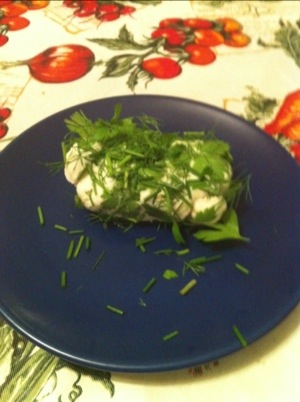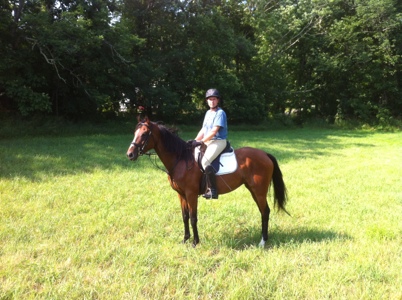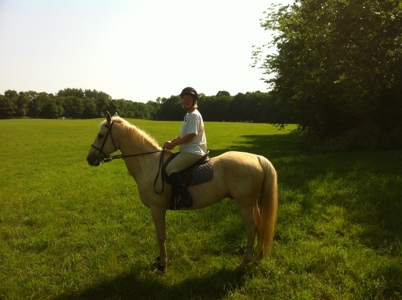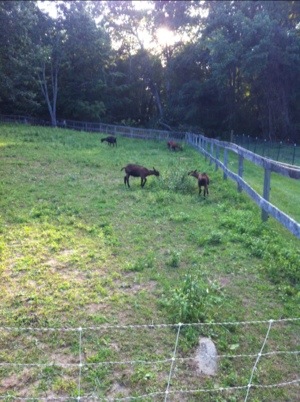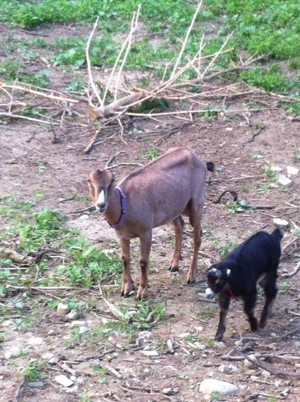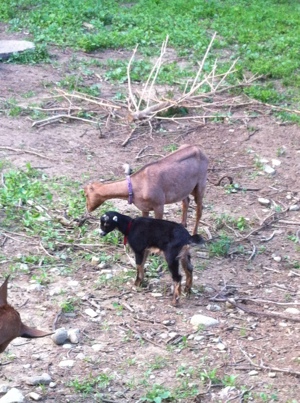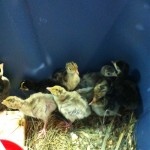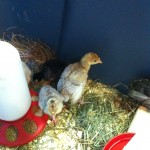In April, our Freedom Ranger meat chickens arrived on the farm (read here). Saturday morning, the first group of 23 got processed. Of the original 51, none died due to disease, however, we did lose 6 to predators (probably a raccoon). Here are our observations about the birds:
1. The chickens were just over 10 weeks old and had an average packaged weight of 3.7lbs. This is a little lower than originally hoped for, but was a 67% live to packaged weight conversion. By comparison, a group of cornish cross that I processed for someone else at 8 weeks averaged over 4lbs and had a 75% live to packaged conversion.
2. 45 birds at 10 weeks were consuming 25-30lbs of feed a day. The first 23 that we processed were the larger birds. The remaining 22 birds will be raised another 3 weeks.
3. It took 750 lbs of feed (15 bags) to raise the entire group of birds to the 10 week point. I expect to use another 200-250lbs to raise the remaining birds 3 more weeks. Rough math means that it took about 4.5lbs of feed per lb of meat. By comparison, I have seen numbers more like 2.5-3lbs of feed per lb of meat for the Cornish Cross.
4. Meat birds are disgusting. They poop a lot and sit around a lot more compared to dual purpose birds. From all the discussions with others, I don’t think there was a significant difference between our Freedom Rangers and Cornish Cross birds.
5. While the Freedom Rangers definitely got larger faster than a Dual Purpose rooster (like a Barred Rock), the meat was not necessarily better and the higher feed consumption was a disadvantage.
6. Cornish Cross had fewer feathers, larger breasts, and bigger chest cavities at 8 weeks than our Freedom Rangers had at 10 weeks.
Overall, we have decided that if we raise more pure meat birds, they will be Cornish Cross. Also, even as large as our chicken tractor is, 50 is more than we want in that space. I think we will plan for 25-30 next time.
While we do make a little profit on the birds sold, it is not significant enough to make us want to do chickens full-time.

